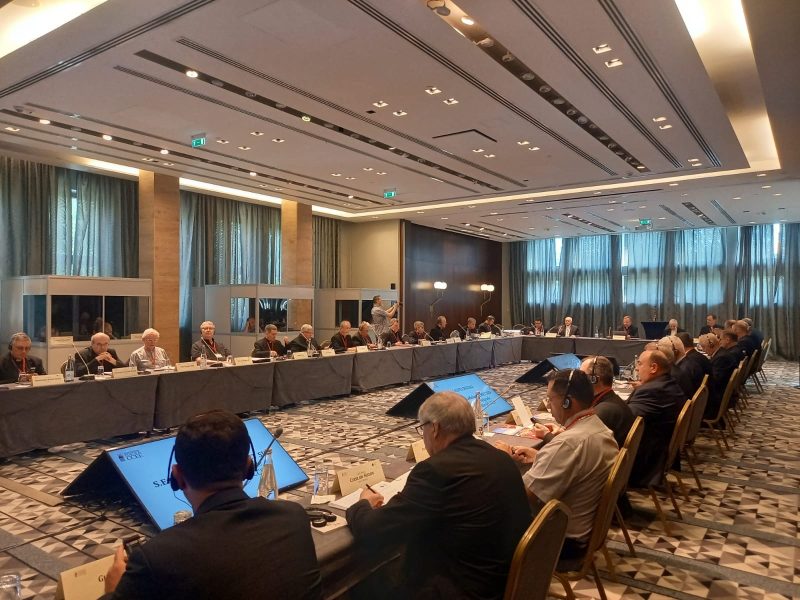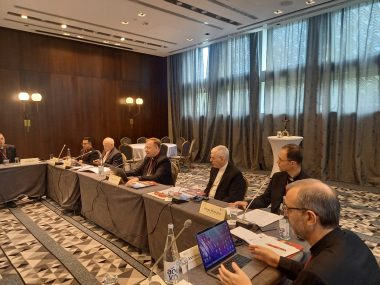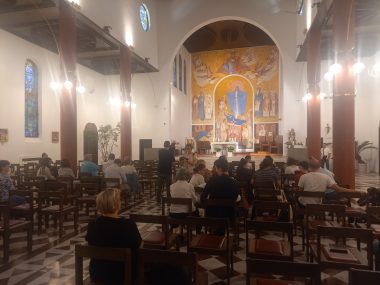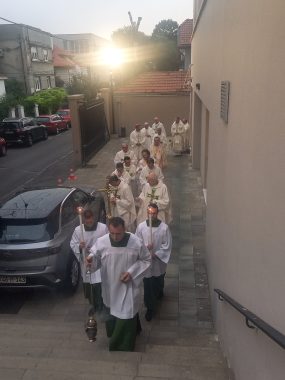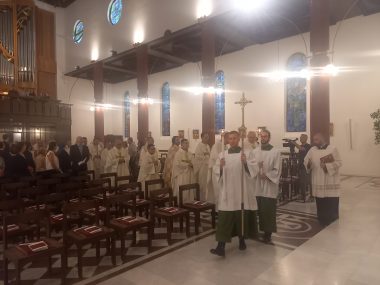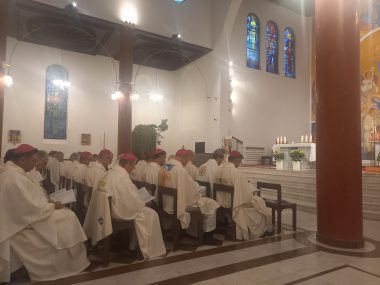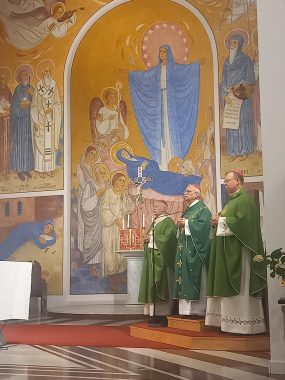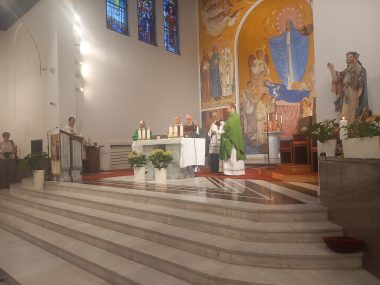The annual Assembly of the Presidents of the Bishops’ Conferences of Europe began with a welcome from H.E. Msgr. Ladislav Nemet, Archbishop of Belgrade and CCEE Vice-President. In his speech, the Archbishop described the current religious and social context of Serbia, with 6.3 million inhabitants, 300,000 of whom are Catholics organised within one Archdiocese, three dioceses and a Greek-Catholic eparchy: a multicultural and multi-ethnic country where culture of dialogue and cooperation are the basis of civil coexistence.
The Apostolic Nuncio to Serbia, H.E. Msgr. Santo Gangemi, spoke of Serbia as a country of borders where various traditions converge, reminding us that Serbia is also a land of Christians, fertilised by the blood of not a few martyrs and made illustrious by the presence of Saints who have marked the history of the Church, such as the soldier, Ambrose. Finally, he recalled how the missionary dimension is one of the constitutive elements of the Church, without which it would fail in the task assigned to it by Jesus, of going out and bringing the proclamation received gratuitously; only within the missionary impulse does the Church renew itself and grow.
In opening the proceedings, H.E. Msgr. Gintaras Grušas, Archbishop of Vilnius and CCEE President, recalled the many situations of conflict, especially in Ukraine, the Armenian people and the inhabitants of the Holy Land, and renewed his appeal to the “leaders of nations to stop war and work for a just peace. We do not want to resign ourselves to war, we will never tire of praying for peace”.
Presenting the relocation of the CCEE headquarters from St. Gallen to Rome, he recounted the inauguration and blessing of the new offices carried out a few days ago by Cardinal Pietro Parolin, Vatican Secretary of State, in the presence of several prefects of Vatican departments and European ambassadors accredited to the Holy See. “With the new seat in Rome,” reiterated the CCEE President, “we want to contribute to strengthening the collaboration and exchange of the European bishops among each other as well as with the Holy See, and to initiate consultancy relations with experts in various fields. It is a choice that can give a new pastoral impulse and ecumenical impetus, especially in the Jubilee year and during the synodal path.
He then renewed his gratitude to Pope Francis for the cordial meeting and for his valuable guidance, on the occasion of the audience granted to the CCEE Presidency in order to take stock of the Council’s activities and identify priorities for the Church on the Continent. “To Pope Francis we also presented the initiatives in the ecumenical sphere that, as CCEE, we are carrying out, namely the updating of the European Ecumenical Charter of 2001, the text of which will be presented to us at this assembly for possible suggestions before the official signing that we plan to conduct on Divine Mercy Sunday 2025, the year in which the date of Easter coincides for all Christians; as well as the first meeting with the Governing Council of the Permanent Conference of Eastern Orthodox Churches in Europe (OCE) led by its President, Armenian Archbishop Khajag Barsamian”.
In preparation for the second session of the Synod on Synodality, President Grušas dwelt on the role that continental bodies and Bishops’ Conferences can play in living and growing synodality and on the value of a continental assembly, inviting the bishops “to rethink the role of the CCEE and its commitment to evangelisation in Europe; to evaluate a possible subdivision into geographical areas that would increase collaboration between the bishops of the same European region so as to facilitate listening to our communities and ensure greater service to the territory”.
In conclusion, he invited everyone to prepare for the approaching Jubilee so that “it may be an event of grace for our communities and our countries and an opportunity to witness that Christ is the only hope for mankind. Hope does not disappoint; the Holy Father reminds us in the Bull of Indiction of the Ordinary Jubilee of the year 2025: “Christian hope does not deceive or disappoint because it is grounded in the certainty that nothing and no one may ever separate us from God’s love”.

